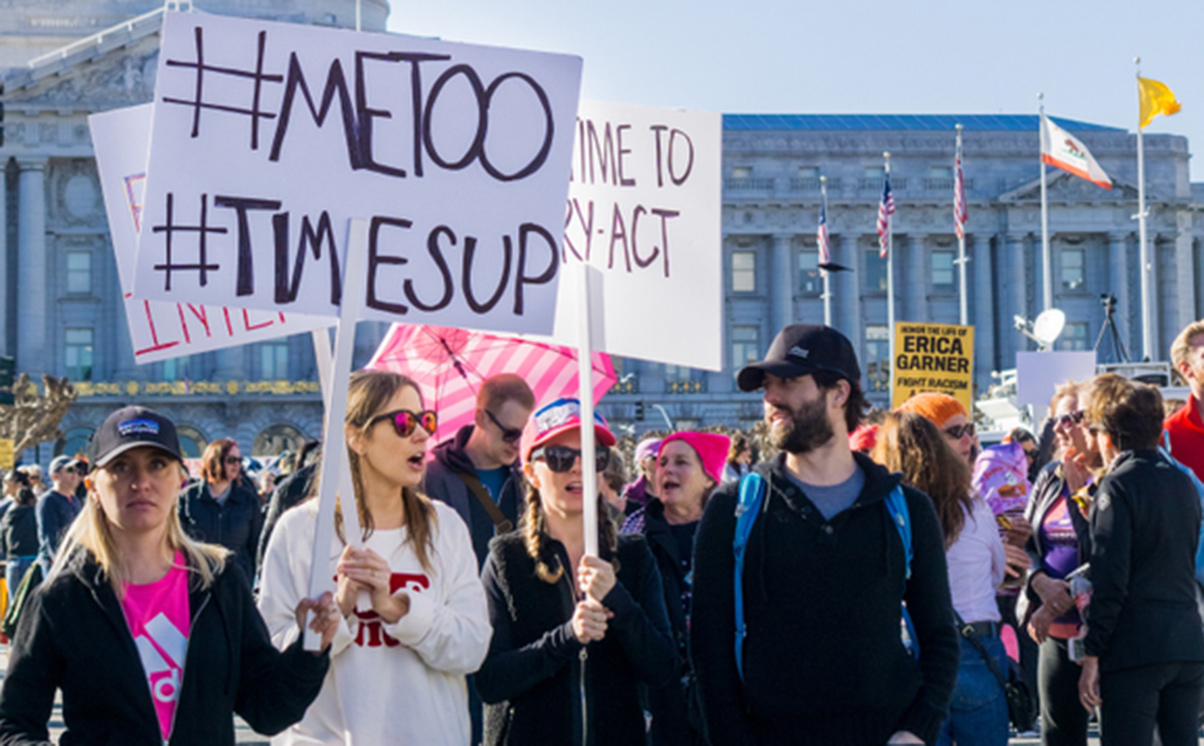A recent private member’s bill in the House of Commons proposes restricting non-disclosure agreements (NDAs) in employment. The aim is to tackle an environment that allegedly allows “employers, through their lawyers and HR professionals, to cover up wrongdoing through an apparently legitimate means”. Charlie Thompson considers why restrictions would be necessary and how they could work in practice.
This is the latest ratchet in the increasing scrutiny of the use of NDAs since the #MeToo movement began in 2017. NDAs have featured in most high-profile cases since the campaign started, typically portrayed as an attempt to silence an employee.
The MP proposing this bill, Maria Miller, says: “I believe that the use of non-disclosure agreements is driving the wrong culture in the British workplace — a culture where poor management can be covered up and where the silence of employees who have experienced significant wrongdoing can effectively be purchased, even motivating a small number of employees to vexatiously seek pay-outs from employers by making spurious allegations. We simply have to break this damaging cycle.”
She goes on to ask: “If an employer is willing to cover up even unlawful behaviour with an NDA, what is stopping their putting pressure on employees to withdraw allegations of wrongdoing in return for a pay-out and an NDA never to divulge what has happened?”
What is an NDA?
There is no legal definition of an NDA. What Miller appears to refer to are the confidentiality provisions in settlement agreements entered into between employees and employers after the raising of allegations by the employee.
A riposte to the private member’s bill is that, in practice, most employees do not want to be defined by what happened to them at work and are happy to accept confidentiality so that both parties can move on. In anticipation of this, Miller says: “Nothing in the bill would stop that. If an employee makes an allegation of wrongdoing that an employer will not investigate and resolve, the employee could still accept an offer to leave an organisation in return for financial compensation; the change would be that employers could not demand a non-disclosure agreement because it would be unlawful. That would be an important step forward.”
Therefore, what appears to be proposed is that NDAs would still be allowed, but not where the employer insists on them.
Is this proposed ban necessary?
Views differ on these questions, but it is important to consider the following two points. Firstly, Miller says NDAs are currently “completely unregulated”, which is not entirely accurate. Secondly, the use of NDAs has changed since #MeToo.
Settlement agreements between employees and employers are regulated. Unless the agreement meets certain requirements, a waiver of statutory employment claims will be void. One of those requirements is that the employee obtains independent legal advice, typically from a solicitor.
In 2018, the Solicitors Regulation Authority issued a warning notice stating that inappropriate use of NDAs may put solicitors in breach of the fundamental tenets of behaviour expected by the regulator. This includes precisely the conduct that Miller seeks to prevent.
That warning notice has been updated, and the Law Society subsequently published a practice note in 2019 setting out its view of good practice on the use of confidentiality provisions.
Since 2017, the format of settlement agreements has noticeably changed. Where they contain confidentiality provisions, they tend to include carve-outs in which the employee will not breach the agreement if, for example, they report a matter to the police or regulator. While statutory confirmation of this is arguably unnecessary, it may be welcome.
So too has the attitude of employers changed post-#MeToo. When an employer enters into a settlement agreement, it is looking for certainty and finality. If there is a prospect that the settlement agreement will not mark the end of the matter, an employer will be less willing to pay settlement sums to the employee. This presents a quandary for an employee seeking significant compensation but understandably unwilling to be subjected to the expense, stress, and public scrutiny of litigation.
This attitude shift is emblematic of a significant culture change since #MeToo. Where allegations are raised, there needs to be an investigation, and it needs to be followed to its conclusion. It is simply not an option to “nip it in the bud” by entering into a settlement agreement while allegations remain uninvestigated.
Even before these interventions since 2017, there were certain types of information that an NDA in a settlement agreement could never cover up. For example, a settlement agreement could not prevent an employee from raising a concern under whistleblowing legislation.
Furthermore, and more fundamentally, the drafting of any confidentiality provision in a settlement agreement is a balancing act; there is no guarantee that a court would ever enforce it, and the further an employer reaches, the more it puts itself at the risk of having an unenforceable agreement. The principle that “there is no confidence as to the disclosure of an iniquity” was established in 1857.
Some would say that the current framework governing NDAs is sufficient, especially with increased scrutiny of solicitors from the SRA.
How would such a ban work?
The proposal appears to be that employers would no longer be able to insist on confidentiality provisions in a settlement agreement.
The difficulty with seeking to impose bans through legislation is that they often are ineffective. The very lawyers criticised by Ms Miller will seek to find a way around it. For example, exclusivity terms in zero-hours contracts have been prohibited since 2015, but in practice, some employers have indirectly achieved exclusivity through their scheduling practices.
If a ban is to be explored further, then thought is required as to what precisely falls within the scope of the prohibition. Is it just the existence and terms of the agreement, or is it more far-reaching, such as a prohibition on making derogatory statements? What will the penalties be for non-compliance? Would the agreement be unenforceable, or would the employer be required to pay a fine?
Consideration should also be given to evidencing that an employer did not insist on the NDA, as it will be easy for employers and their lawyers to insert a provision that the parties entered into mutual confidentiality terms without the employer insisting upon them. It will always be extremely difficult to establish whether an employee agreed to confidentiality or had it imposed upon them.
Lawmakers would also need to consider which terms would be banned. Would it only be disclosures to the police, regulators and people who owe a duty of confidentiality (such as doctors and lawyers)? Or would it be wider?
The desire to crack down on the improper use of NDAs is to be welcomed, but a ban may not address the problems that a prohibition seeks to solve.
SRA warnings
Joseph Lappin, Head of Employment, recently addressed NDAs in an article on Law.com about the new campaign.
“From an employment lawyer’s perspective, no lawyer should ever advise their client to agree to an NDA which prevents them reporting illegal activity or serious wrongdoing – and this type of NDA probably wouldn’t be enforceable in any event. The Law Society and SRA have published lots of guidance on this,” Joseph explains.
You can find further information regarding our expertise, experience and team on our Employment page.
If you require assistance from our team, please contact us.
Subscribe – In order to receive our news straight to your inbox, subscribe here. Our newsletters are sent no more than once a month.







